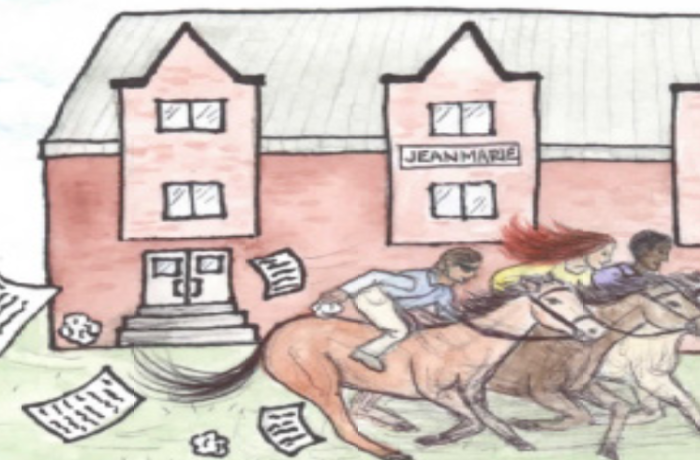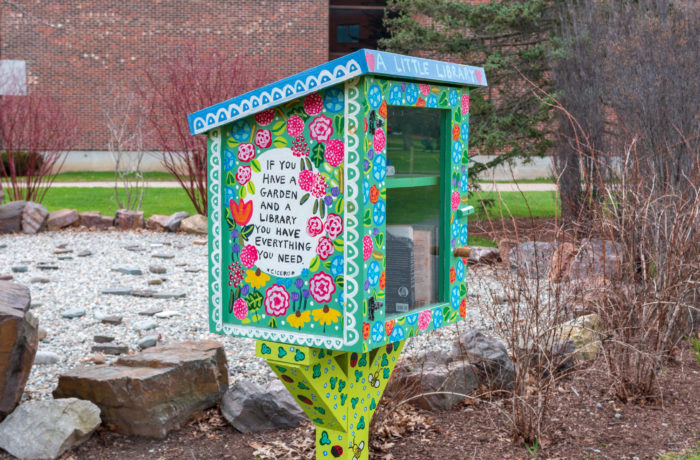By Sandra Collopy
Arts and Culture Editor
As the world of modern love is redefined by digital dating applications and websites, swiping right on Tinder or Bumble has become the norm at St. Michael’s, for better or for worse.
With Valentine’s Day approaching, roses, chocolate and fancy dinners are in the cards for some, but not everyone. Others might turn to online dating, which allows people to make decisions based on a few photos. Users can quickly sift through people based on what they look like.
“With dating, it seems that much of the initial ‘screening’ of potential love interests takes place over social media platforms, which are potentially misleading,” said Kathy Butts, the Director of Personal Counseling at the Bergeron Wellness Center.
“At the same time, some of that screening is helpful and has the potential to save those involved the time that it might have taken to figure out that they do not share the same interests or that they are not physically attracted to one another,” Butts said.
Rather than taking the time to get to know someone, online dating shows a profile of a person, and users can compare that potential connection to what they are looking for. Then the process of getting to know them happens.
The internet and social media have become a new medium for people seeking relationships.“Online dating, for example, has fundamentally altered the process of finding romance”, wrote Jessica L. James in her thesis for a Masters of Arts at Texas State University, Mobile Dating in the Digital Age: Computer-mediated Communication and Relationship Building On Tinder. “The expansion of the Internet has reconstructed how we initiate and maintain personal relationships”, wrote James.
For Jake Milton ’19, the problem with online dating comes from the way people are initially introduced to each other. First impressions have been happening virtually, rather than in person. “I think that relationships today are 100 percent different than they used to be. Whether or not tinder or online dating created that or simply contributes to it, people don’t approach people and introduce themselves the way they had to before,” Milton said. “So whether it’s liking a hot girl’s post on Instagram or sliding into Twitter DMs, I think it’s all part of a much bigger phenomenon.”

Dating habits have shifted from private dates, intimate conversations, and romantic gestures into Instagram posts, late night texts, and virtual dialogue. There’s an endless pool of dating applications and websites include Tinder, Bumble, Hinge, Match.com, Zoosk, and OkCupid.
The kind of romance depicted in classic movies, for some students, is a thing of the past and not everyone is happy about that. “I definitely think our traditional sense of romance is kind of changing for the worse, in that there’s almost this pressure to keep things casual and not be tied down to someone,” said Janelle Miller ’18.
“Everyone seems more afraid of expressing feelings because there’s this fear of coming off as too clingy, too emotional, too ‘crazy’. So I feel like that makes relationships so much more complicated and way less straightforward than in the past,” Miller said.
Tinder says on their website that they have had more than 20 billion matches on their app. A lot of college students carry their smartphones everywhere, so these speed dating platforms can be used anywhere at any time.
“That is, users are able to present only those aspects of themselves that they want others to see, thus possibly reducing rejection by other users,”writes Ginette C. Blackhart at East Tennessee State University in a recent research report.
Online dating users get to know each other in most cases without ever meeting. The person behind the screen could be a completely different person in real life. “Those who engage in online dating simply do not know who is on the other side of a computer,” Blackhart wrote.
People represent their appearance with just a photo or two, so choosing and typing out the right words is the only way to make an impression.
Dating apps have also brought other concerns front and center for users. A study at the University of Vienna found that online dating has actually reduced racial segregation of our society. Users meet people of other races, ethnicities, that they normally wouldn’t meet offline and in their own communities. On Tinder’s website they say their app is used in 196 countries.
Other research shows that racial stereotypes influenced users and can lead to biased rejections. Tinder and OKCupid found in reasearch reports that many users swipe left, or reject, black women and asian men the most. The data captures the discriminative side of this new dating reality.
“Everyone seems more afraid of expressing feelings because there’s this fear of coming off as too clingy, too emotional, too ‘crazy’. So I feel like that makes relationships so much more complicated and way less straightforward than in the past,” Miller said.


